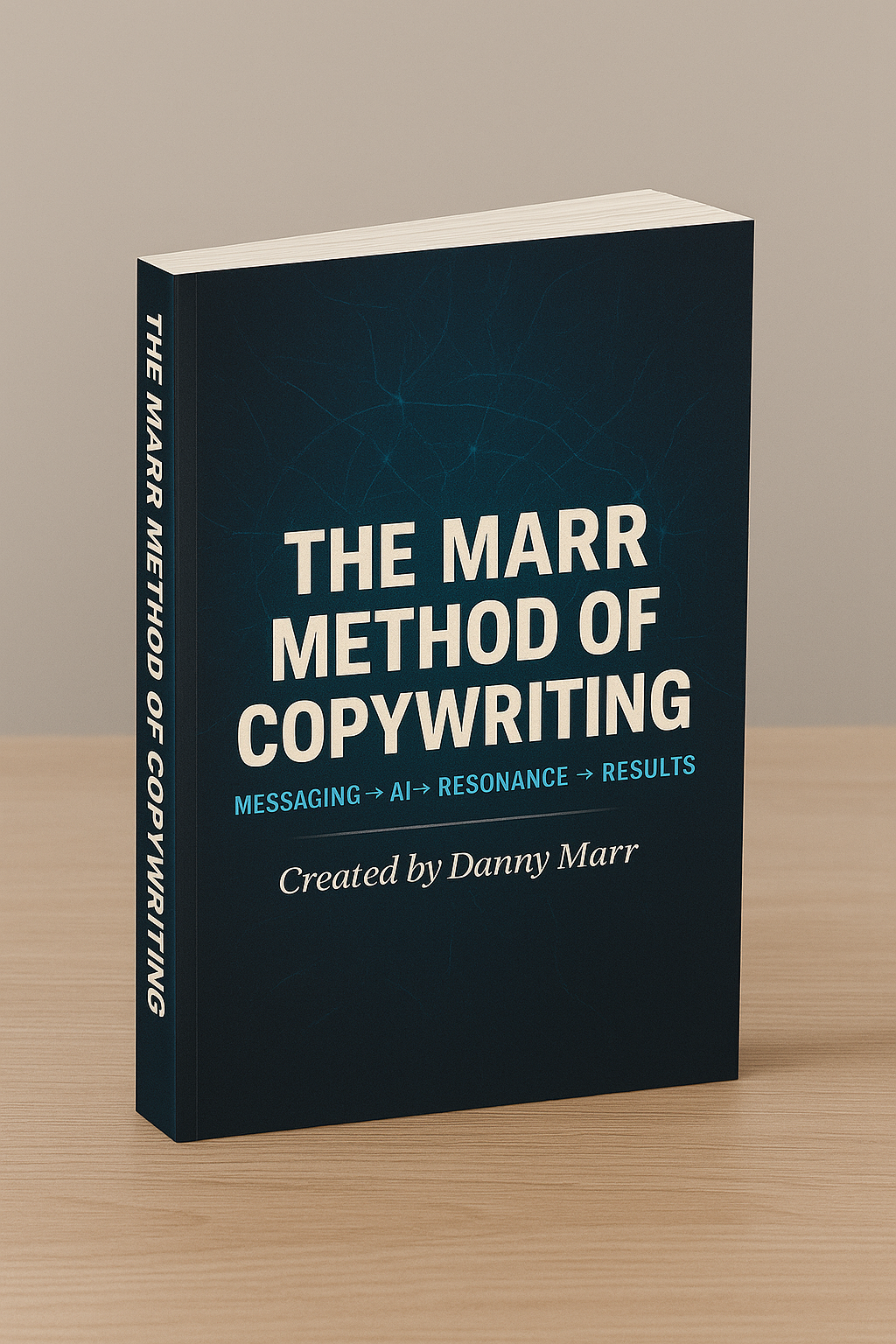
Introduction to Confidence in Copywriting
Copywriting isn’t just about stringing words together to grab attention; it’s about learning how to communicate with conviction and authenticity.
When you sit down to write, every choice you make; from the tone you strike to the way you structure your message, becomes a reflection of your confidence, not only as a writer but as an individual.
Think about it: when you write with clarity and assurance, you’re demonstrating trust in your abilities and in the value of what you’re sharing.
This process doesn’t just stay on the page.
It carries over into the way you interact with others, the way you present yourself, and the way you tackle challenges.
Confidence in copywriting is less about knowing all the answers upfront and more about trusting the process.
It’s about allowing yourself to write from a place of clarity and intention, even if there’s uncertainty along the way.
You don’t have to be perfect.
You just have to commit to communicating with purpose and authenticity.
That commitment, in turn, builds momentum.
With every draft you complete, every headline you refine, and every call to action you shape, you’re reinforcing your ability to create something meaningful; and that practice leads to growth not only in your writing but in your overall sense of self assuredness.
This connection between confidence in writing and personal confidence is deeply rooted in how we perceive our abilities.
When you start trusting your voice on the page, you naturally start trusting it in other areas of life.
That assurance comes through when you’re pitching a bold idea, advocating for yourself in a conversation, or navigating a tough decision.
Copywriting offers a unique space to experiment with this confidence in a low stakes way, you can practice expressing ideas clearly and persuasively, tweaking them until they land just right, all while building the skills to do the same in real-world situations.
The beauty of this process is that it encourages you to step outside your comfort zone, little by little, without requiring you to take giant leaps all at once.
Each small step, whether it’s mastering a new technique or trying a different approach to crafting a message, feeds into a larger transformation.
This is the essence of confident writing: it’s about showing up for the work, trusting the choices you make, and realizing that each step forward strengthens not just your writing, but the way you see yourself.
Building Confidence Through Words

The way you choose and use words has an undeniable impact; not just on how others perceive your message, but on how you perceive yourself.
Confidence, as it turns out, can be built and expressed through the act of writing itself.
When you deliberately craft sentences that exude clarity and strength, you’re doing more than communicating effectively; you’re reinforcing your own belief in your abilities.
Each phrase, each word choice, becomes a small affirmation of what you stand for and the value you bring to the table.
Think about the psychology of language for a moment.
The words you write not only shape the thoughts and emotions of your audience but also your own mindset.
If you consistently use language that is assertive and purpose-driven, your confidence in your message naturally grows.
And as your confidence in writing improves, you begin to notice a ripple effect in other areas of life.
This isn’t just theory; research backs it up.
This means that as you practice creating compelling copy, you’re also sharpening the communication skills that boost your overall self-assurance.
Take, for instance, the choice to avoid passive phrases or vague expressions in your writing.
When you opt for stronger, more confident language; like replacing “I think this could work” with “This approach will achieve results”, you’re not only projecting confidence outward but also internalizing it.
Over time, these habits extend beyond your writing. They start to reshape the way you speak, how you advocate for yourself, and even how you approach challenges.
Learning to wield words powerfully becomes a tool not just for persuasion but for self-empowerment.
It’s also worth noting how impactful this skill is in high stakes situations.
Imagine crafting an email to pitch your services or explain the value of your work to a potential client.
The tone, structure, and phrasing you choose directly influence how they perceive you.
But in the process of crafting that email, you’re also reinforcing your belief in the quality of what you’re offering.
The act of clearly communicating your value helps you internalize it. It’s not just about getting results; it’s about realizing your own potential, one word at a time.
Real Life Applications of Confident Copywriting

The skills you develop through confident copywriting go far beyond the screen or page; they seamlessly integrate into everyday scenarios, giving you an edge in personal and professional settings.
Picture this: you’re at a networking event, and someone asks about your work.
Instead of stumbling through a vague explanation, you deliver a concise, compelling answer that holds their attention.
That’s the power of writing with clarity and purpose translating directly into how you communicate in real life.
Take another example; handling difficult conversations.
Whether you’re addressing a misunderstanding with a colleague or negotiating a better deal with a client, the ability to craft clear, persuasive messages in your writing arms you with the confidence to approach these situations head on.
In fact, many of the strategies you practice in writing, such as structuring arguments effectively or choosing the right tone to connect with your audience, are directly transferable to spoken communication.
When you’ve trained yourself to write assertively, it’s easier to speak that way too.
Think about professional presentations.
Writing with confidence teaches you how to anticipate questions, address concerns, and communicate value; all crucial when standing in front of an audience.
The clarity you gain in your writing helps you distill complex ideas into digestible insights, which makes your delivery not just more effective but also more engaging.
Similarly, email communication, a staple of modern professional life, becomes an opportunity to showcase your confidence.
A well written email doesn’t just convey information; it builds trust and establishes authority.
Even in personal interactions, the influence of confident writing shines through.
Perhaps you’re trying to inspire a friend to take action on a shared goal, or maybe you’re setting boundaries in a way that needs to be both firm and empathetic.
Your writing habits; choosing precise words, avoiding overly complicated phrases, and focusing on your core message, train you to handle these moments with clarity and composure.
The impact also extends to how you frame your ideas during decision making.
Imagine being in a brainstorming session or pitching an idea to your team.
The discipline of confident copywriting teaches you to present your thoughts in a structured, persuasive manner, ensuring your voice is heard and your ideas are given the consideration they deserve.
Instead of second-guessing your input, you step forward with conviction.
These real world applications highlight how writing confidently is not just about creating content; it’s a tool that shapes how you engage with the world, advocate for yourself, and connect with others on a deeper level.
Practical Exercises to Enhance Confidence

To build confidence in both your copywriting and personal interactions, hands on practice is essential.
One highly effective technique is engaging in role play or simulations.
For example, you might pretend you’re pitching a service to a client or crafting a persuasive email for a challenging audience.
This type of experiential learning allows you to step into real world scenarios and refine your communication skills without the pressure of immediate consequences.
Such experiential learning is recognized as a pivotal method for skill development in communication.
Feedback and reflection play a huge role in making these exercises impactful.
Review your work regularly to pinpoint where you excel and where there’s room for improvement.
For instance, after drafting a piece of copy or completing a role play scenario, ask for feedback from someone whose opinion you trust.
This could be a mentor, a peer, or even a supportive online community.
Honest, constructive feedback helps you identify blind spots and improve faster.
Feedback is an essential element in the development of communication skills.
Using video or audio tools can also provide unexpected insights.
Record yourself reading a sales pitch, presenting a concept, or practicing a public speaking segment.
When you replay the recording, you can observe not only your word choice but also your tone, pacing, and delivery.
This self-review process allows you to catch areas that might feel less confident and fine-tune your performance.
Video playback aids in critical reflection on performance and skill improvement.
Another practical exercise is setting short, achievable goals for your writing sessions.
For example, challenge yourself to write three impactful headlines in 10 minutes or rewrite a call to action using more persuasive language.
These small, focused exercises build muscle memory over time.
The goal isn’t perfection but consistent practice, which is key to reinforcing confidence.
Additionally, immerse yourself in active observation.
Pay attention to ads, emails, and content you come across in your daily life. Study their structure, tone, and messaging, and analyze what makes them work; or not.
Then, try to replicate those techniques with your own spin.
This type of practice not only sharpens your technical skills but also strengthens your belief in your ability to create equally compelling work.
Lastly, take moments to celebrate your progress.
It’s easy to overlook how far you’ve come, especially when the improvements seem small.
Whether it’s finishing a challenging project or receiving positive feedback from a client, recognizing these wins keeps you motivated and reinforces your confidence for the next challenge.
Success Stories and Examples

Stories of people turning their writing skills into personal growth journeys are everywhere.
One powerful example is a small business owner who initially struggled to articulate the unique value of their services.
They often relied on generic, overly formal language that didn’t reflect the heart of their work.
By committing to more confident copywriting practices; like speaking directly to their audience’s needs and simplifying their messaging, they not only increased engagement with their marketing but also felt a shift in how they described their business in person.
Suddenly, pitching ideas at networking events or explaining their services became second nature, all because they had already practiced refining their message through writing.
Another example comes from a professional coach who was hesitant to use email as a tool for growing their client base.
They felt their words might come across as pushy or overly promotional.
By focusing on value based copywriting for coaches and creatives, they learned to approach each message with empathy and purpose.
They started crafting emails that highlighted their audience’s struggles and presented their services as a genuine solution.
Not only did their confidence in email marketing grow, but so did their ability to have direct, impactful conversations with potential clients.
This person shared how writing with clarity and intention ultimately made them more comfortable discussing their worth during in person consultations.
Take, for instance, a freelancer who spent years second guessing their pitches to potential clients.
They constantly revised their proposals, worrying that their words weren’t strong enough to land them jobs.
Through consistent practice in writing with confidence and clarity, they learned to streamline their proposals and lead with persuasive, results driven language.
Over time, not only did their client acceptance rate improve, but they also found themselves speaking with more authority during virtual meetings and presentations.
That sense of clarity carried into their daily interactions, making them less hesitant to advocate for their ideas or negotiate rates.
An especially inspiring story comes from a graphic designer who decided to venture into content creation.
Though they had a talent for visual storytelling, writing was a challenge.
They tackled it head on by learning authentic persuasive writing techniques and applying them to their captions and blog posts.
What started as a way to attract clients turned into an opportunity for personal growth.
They discovered that the confidence they gained from crafting compelling captions helped them speak up in collaborative meetings, where they’d previously felt overshadowed.
Finally, there’s the story of a nonprofit founder who used storytelling as a way to fundraise more effectively.
They had always struggled with clearly communicating their mission to donors.
Through practice, they mastered personal growth copywriting strategies, which enabled them to tell their story with passion and precision.
Not only did they surpass their fundraising goals, but they also felt more assured when delivering their mission statement at events or during interviews.
They credited their improved writing skills with helping them articulate their vision in every aspect of their leadership.
Conclusion: The Ongoing Journey

Mastering confidence in copywriting isn’t just about becoming a better writer; it’s about unlocking the version of yourself that shows up fully in every aspect of life.
With every sentence you write, every headline you refine, and every call to action you perfect, you’re building habits that extend far beyond the page.
The discipline of crafting clear, persuasive messages is an exercise in believing in your voice, your ideas, and your ability to create meaningful impact.
The beauty of this journey is that it’s not about being perfect.
It’s about committing to steady progress and letting that progress reinforce your confidence.
Every draft you complete is evidence of your growth.
Every time you choose stronger words or structure a message with clarity, you’re proving to yourself that you have what it takes; not just as a writer, but as a communicator in all areas of your life.
Think of copywriting as a training ground for real world interactions.
Whether you’re negotiating a deal, presenting an idea, or simply expressing your thoughts more clearly, the skills you build here have a natural way of showing up when it matters most.
And as your confidence grows, you’ll notice how it reshapes the way you approach challenges.
Instead of doubting your abilities or second guessing your choices, you’ll start stepping forward with intention and trust in yourself.
Of course, this process doesn’t happen overnight.
Confidence is like a muscle; you build it through repetition, reflection, and a willingness to push past what feels uncomfortable.
The key is to keep showing up.
Practice writing with purpose, experiment with new techniques, and embrace feedback as an opportunity to learn.
Over time, these small, consistent efforts create a ripple effect that touches every corner of your life.
It’s also important to recognize that confidence isn’t about never making mistakes.
It’s about how you respond when things don’t go as planned. When you approach challenges with the mindset of a confident writer, you’re better equipped to adapt, learn, and keep moving forward.
This resilience is a powerful tool; not only in your writing but in every decision and interaction you face.
Ultimately, the journey of confident copywriting is about more than words on a screen.
It’s about learning to trust yourself and the value you bring to the table.
So keep refining your craft, stay open to growth, and celebrate the progress you’re making.
You’ll find that the confidence you build through writing has the potential to transform your life in ways you never imagined.
💡 Quick question before you go:
Are you using AI in your copywriting — or letting it use you?
Take the 2-minute quiz to uncover your Copywriting + AI Style, get your personalized analysis, and receive a free copy of The Marr Method of Copywriting.
 👉 Take the Quiz — Unlock Your Style
👉 Take the Quiz — Unlock Your Style
